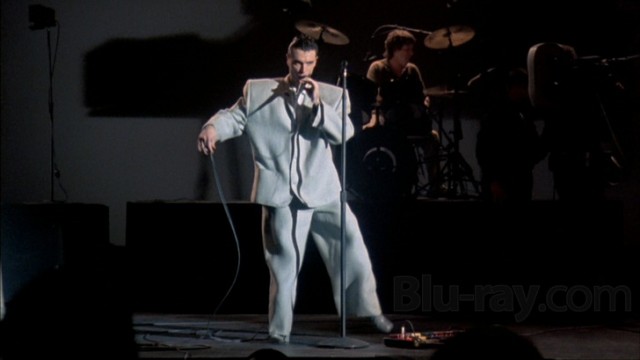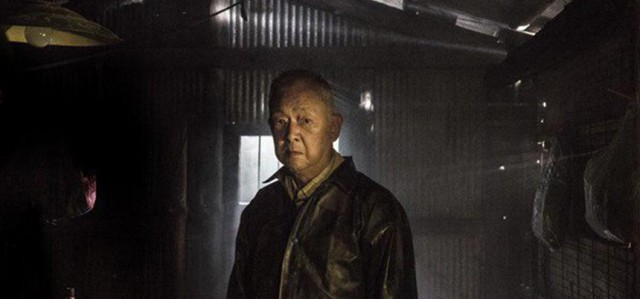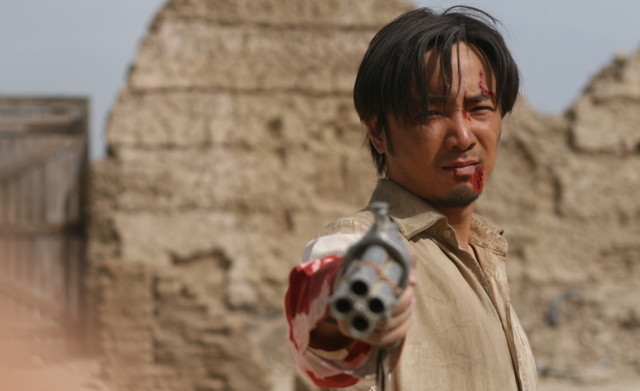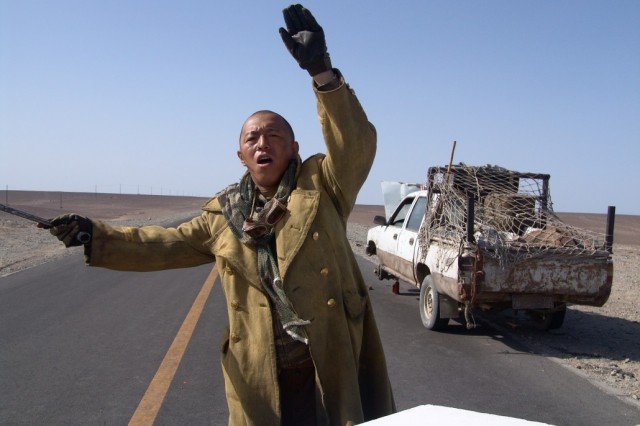JEALOUSY (LA JALOUSIE) (Philippe Garrel, 2013)
Film Society of Lincoln Center, Francesca Beale Theater, Walter Reade Theater
144 & 165 West 65th St. between Broadway & Amsterdam Ave.
August 15-28
212-875-5601
www.filmlinc.com
www.distribfilms.com
 Nearly fifty years after the release of his first film, the short Les enfants désaccordés, post-New Wave auteur Philippe Garrel has made one of his most intimate and personal works, the deeply sensitive drama Jealousy. Garrel’s son, Louis, who has previously appeared in his father’s Regular Lovers, Frontier of the Dawn, and A Burning Hot Summer, stars as Louis, a character based on Garrel’s own father, essentially playing his own grandfather. As the film opens, Louis, an actor, is leaving his wife, Clothilde (Rebecca Convenant), for another woman, Claudia (Anna Mouglalis). A talented but unsuccessful actress, Claudia immediately bonds with Louis’s young daughter, Charlotte (Olga Milshtein). But soon jealousies of all kinds — professional, romantic, maternal, paternal, residential, and financial — affect all the characters’ desires to find happiness in life.
Nearly fifty years after the release of his first film, the short Les enfants désaccordés, post-New Wave auteur Philippe Garrel has made one of his most intimate and personal works, the deeply sensitive drama Jealousy. Garrel’s son, Louis, who has previously appeared in his father’s Regular Lovers, Frontier of the Dawn, and A Burning Hot Summer, stars as Louis, a character based on Garrel’s own father, essentially playing his own grandfather. As the film opens, Louis, an actor, is leaving his wife, Clothilde (Rebecca Convenant), for another woman, Claudia (Anna Mouglalis). A talented but unsuccessful actress, Claudia immediately bonds with Louis’s young daughter, Charlotte (Olga Milshtein). But soon jealousies of all kinds — professional, romantic, maternal, paternal, residential, and financial — affect all the characters’ desires to find happiness in life.
Shot in widescreen black-and-white by Belgian cinematographer Willy Kurant, who has photographed such films as Jean-Luc Godard’s Masculin Féminin, Agnès Varda’s Les creatures, and Maurice Pialat’s À nos amours during his glorious career, Jealousy is a subtle meditation on the many fears that can accompany love. Somewhat of an innocent, Louis doesn’t yet realize the consequences of his actions, thinking that he can slide through life and good things will just happen. But as his love for the secretive Claudia grows, so do the problems they all encounter. Philippe Garrel wrote the film, which is divided into two sections, titled “I Kept the Angels” and “Sparks in a Powder Keg,” with three collaborators, Caroline Deruas, Arlette Langmann, and Marc Cholodenko, who each took on different scenes, resulting in a choppiness that can be off-putting and disorienting at times, but the strong performances (featuring significant improvisation), tender pacing, quiet interludes, and melancholic score by Jean-Louis Aubert overcome that drawback. The film is very much a family affair — in addition to Philippe directing his son playing Philippe’s father, Philippe’s daughter, Esther Garrel, plays Louis’s sister — adding to the poignancy and intimacy of this very moving story.
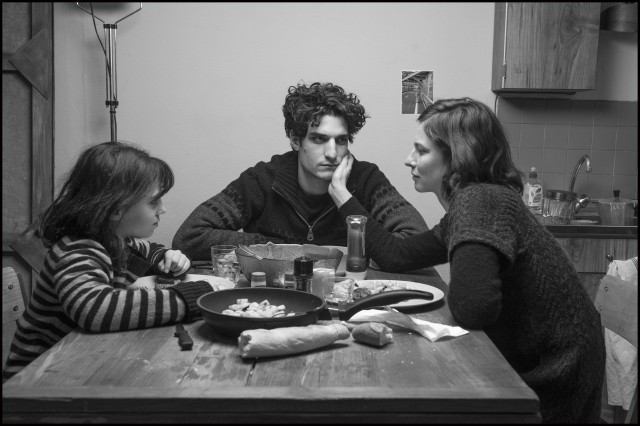
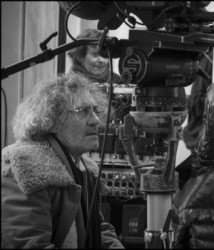
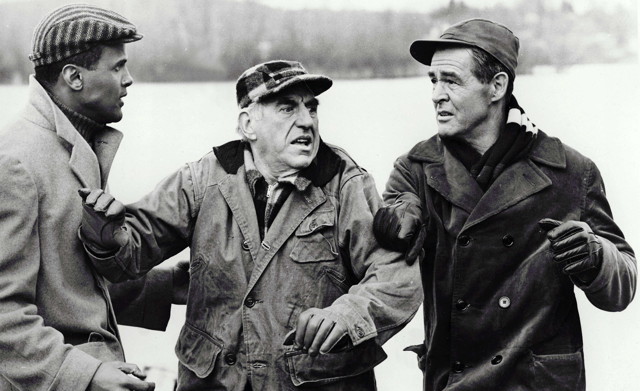
 “I want a safe thing,” Dave Burke (Ed Begley) tells Earl Slater (Robert Ryan) near the beginning of Robert Wise’s 1959 crime drama Odds Against Tomorrow. “This is a one-time job. One roll of the dice and then we’re through forever.” But it’s never that easy, either in real life or in film noir. At first Slater, a hard and fast old-time racist, doesn’t want in on the job because the third man is Johnny Ingram (Harry Belafonte), a smooth-talking black nightclub singer trying to support his ex-wife, Ruth (Kim Hamilton), and their young daughter, Eadie (Lois Thorne), while in debt to a local mobster (Will Kuluva). But Slater has problems of his own; he’s tired of being supported by his devoted girlfriend, Lorry (Shelley Winters), and helping out their extremely flirtatious neighbor, Helen (Gloria Grahame). Soon they are converging on a bank in the small upstate town of Melton, New York, thinking that one big score will settle all of life’s ills. But things rarely work out that way, especially in black-and-white heist films.
“I want a safe thing,” Dave Burke (Ed Begley) tells Earl Slater (Robert Ryan) near the beginning of Robert Wise’s 1959 crime drama Odds Against Tomorrow. “This is a one-time job. One roll of the dice and then we’re through forever.” But it’s never that easy, either in real life or in film noir. At first Slater, a hard and fast old-time racist, doesn’t want in on the job because the third man is Johnny Ingram (Harry Belafonte), a smooth-talking black nightclub singer trying to support his ex-wife, Ruth (Kim Hamilton), and their young daughter, Eadie (Lois Thorne), while in debt to a local mobster (Will Kuluva). But Slater has problems of his own; he’s tired of being supported by his devoted girlfriend, Lorry (Shelley Winters), and helping out their extremely flirtatious neighbor, Helen (Gloria Grahame). Soon they are converging on a bank in the small upstate town of Melton, New York, thinking that one big score will settle all of life’s ills. But things rarely work out that way, especially in black-and-white heist films.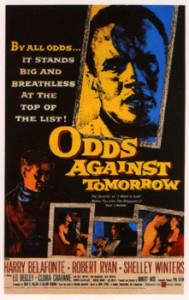
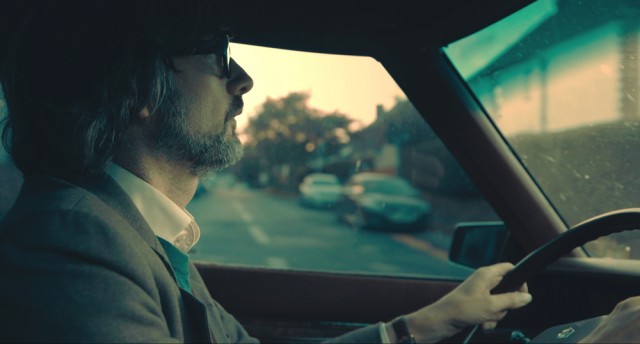
 Florian Habicht’s Pulp: A Film About Life, Death & Supermarkets is a brilliant inside look at the long-lasting relationship between a band and its hometown. In December 2012, British alternative band Pulp returned to the place of its birth, the rugged, working-class city of Sheffield in the north of England, for what was being billed as its last-ever concert on dry land. Pulp frontman Jarvis Cocker hooked up with Habicht (Love Story, Woodenhead), conceiving a project in which the time and place, along with the fans, would be just as important as the band and its music, if not more so. In the nonchronological film, Habicht cuts between archival footage of Pulp, clips from the final concert, interviews on the street with old and young fans, and brief chats with Pulp tour manager Liam Rippon and the other band members: guitarist Mark Webber, keyboardist Candida Doyle, bassist Steve Mackey, and drummer Nick Banks, who are pretty much taking it all in stride. But at the center of it all is the soft-spoken, enigmatic Cocker, who founded Pulp back in 1978 when he was fifteen years old.
Florian Habicht’s Pulp: A Film About Life, Death & Supermarkets is a brilliant inside look at the long-lasting relationship between a band and its hometown. In December 2012, British alternative band Pulp returned to the place of its birth, the rugged, working-class city of Sheffield in the north of England, for what was being billed as its last-ever concert on dry land. Pulp frontman Jarvis Cocker hooked up with Habicht (Love Story, Woodenhead), conceiving a project in which the time and place, along with the fans, would be just as important as the band and its music, if not more so. In the nonchronological film, Habicht cuts between archival footage of Pulp, clips from the final concert, interviews on the street with old and young fans, and brief chats with Pulp tour manager Liam Rippon and the other band members: guitarist Mark Webber, keyboardist Candida Doyle, bassist Steve Mackey, and drummer Nick Banks, who are pretty much taking it all in stride. But at the center of it all is the soft-spoken, enigmatic Cocker, who founded Pulp back in 1978 when he was fifteen years old.